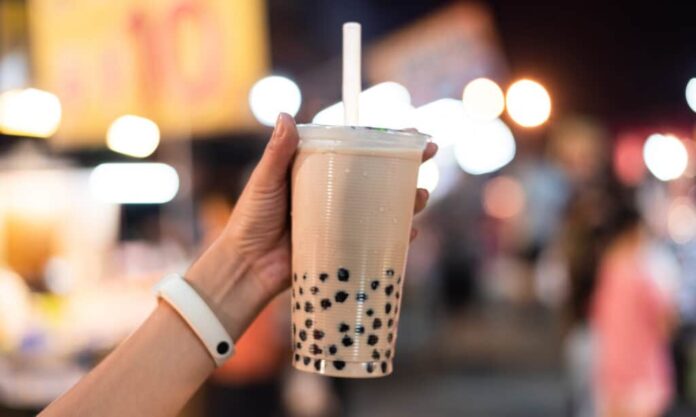Hey there, fellow pet parents! Ever caught your pup giving you those puppy eyes while you’re sipping on your favorite bubble tea? I know the feeling! Today, let’s dive deep into the world of boba and whether our four-legged friends can join in on this trendy treat.
Quick Answer
No, traditional boba (bubble tea) isn’t good for dogs The tapioca pearls and other ingredients commonly found in bubble tea can be harmful to your furry friend But don’t worry – I’ve got some pawsome alternatives for you!
Why Boba and Dogs Don’t Mix Well
The Risky Components
- Tapioca Pearls
- Made from cassava root starch
- Can be a choking hazard
- Difficult for dogs to digest
- May cause intestinal blockage
- Sugar Content
- Most bubble teas are loaded with sugar
- Can lead to:
- Weight gain
- Dental problems
- Diabetes risks
- Upset tummy
- Caffeine
- Many bubble teas contain tea or coffee
- Toxic for dogs
- Can cause:
- Restlessness
- Increased heart rate
- Anxiety
- In severe cases, serious health issues
What Happens if Your Dog Accidentally Eats Boba?
If your furry friend manages to snag a few tapioca pearls here’s what you should know
- Small amounts (1-3 pearls): Usually not life-threatening but monitor your dog
- Watch for symptoms:
- Vomiting
- Diarrhea
- Lethargy
- Loss of appetite
- Difficulty pooping
Pro tip: If your dog ate more than a few pearls or shows any concerning symptoms, call your vet ASAP! Better safe than sorry, right?
The Good News: Dog-Safe Boba Alternatives!
DIY Doggy Boba Recipe
Wanna treat your pup to something special? Try this pet-safe version!
Ingredients:– Small chunks of plain cooked sweet potato- Low-fat plain yogurt- Fresh water- Optional: small pieces of dog-safe fruits
Instructions 1. Cut sweet potato into small, pearl-sized pieces2. Cook until soft but firm3. Mix yogurt with water for the “tea” base4. Combine and serve in a dog bowl
Tips for Keeping Your Dog Safe Around Bubble Tea
- Store Safely
- Keep your boba drinks out of reach
- Use covered containers
- Clean up spills immediately
- Train Your Dog
- Teach “leave it” command
- Don’t encourage begging
- Provide their own treats when you drink boba
- Be Prepared
- Save your vet’s number
- Know the nearest emergency pet clinic
- Keep basic pet first aid supplies handy
Healthy Treat Alternatives for Your Dog
Instead of boba, try these safe options:
- Fresh fruits (in moderation):
- Blueberries
- Apple slices (no seeds)
- Watermelon (no rind)
- Frozen treats:
- Ice cubes with dog-safe broth
- Frozen yogurt drops
- Frozen banana chunks
Common Questions About Dogs and Boba
Q: Can dogs eat fruit-flavored boba?
A: Nope! Even fruit-flavored ones are still made from tapioca and usually contain artificial sweeteners and flavors.
Q: What if my dog loves chewy treats?
A: Try these safer alternatives:- Dental chews- Kong toys with frozen treats- Natural rubber toys
Q: Is tapioca itself toxic to dogs?
A: While not technically toxic, it’s not digestible and can cause blockages.
The Bottom Line
Look, I get it – sharing treats with our furry besties is one of life’s greatest joys! But when it comes to boba, it’s better to keep it to yourself. There are so many other yummy, safe treats you can share with your pup instead.
Remember:- Keep the boba for humans only- Try the dog-safe alternatives- When in doubt, ask your vet- Always supervise your dog with new treats
Final Thoughts
Your doggo might give you those irresistible puppy eyes when you’re enjoying your bubble tea, but staying strong and saying “no” is the best way to show your love! Stick to dog-safe treats and everyone stays happy and healthy.
Pro tip: Next time you’re heading to your fave boba shop, maybe grab a plain puppuccino from a pet-friendly coffee shop for your furry friend instead! They’ll feel special and you won’t have to worry about any tummy troubles.
Stay pawsome, pet parents! And remember – sharing isn’t always caring when it comes to human treats and our four-legged friends. ❤️
Disclaimer: Always consult with your veterinarian before introducing new foods or treats to your dog’s diet, especially if your pet has specific health conditions or dietary restrictions.












